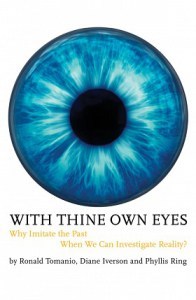Phyllis Edgerly Ring's Blog, page 21
December 5, 2015
How do we make room – for Life?
 Four years ago this week, as I followed the chapters of my novel — and the trail of Eva Braun’s life — to their conclusion, I faced a long day of train travel. It would take me from the southern edge of Germany’s border with Austria nearly to the top of Germany.
Four years ago this week, as I followed the chapters of my novel — and the trail of Eva Braun’s life — to their conclusion, I faced a long day of train travel. It would take me from the southern edge of Germany’s border with Austria nearly to the top of Germany.

Photo: David Campbell
The night before – the entire day before – I’d been riddled with anxiety. I had four train connections to make, and my mind was unhelpfully cataloging every single thing that could possibly go wrong.
This kind of turmoil eventually arises every time I travel alone for extended periods of time, and always for the same reason. After the dreamy honeymoon of my first few days, just the fact that I’m on my own in a place that’s out of my element triggers an inner myth that’s as unkind as it is false: I need to find some way to be in control, in order to be safe.
Since, deep down at the heart of truth, I recognize that I’m never going to be able to do that, this leads inevitably to a separated sense of aloneness that feels eternity-sized. I also know it’s an experience that’s universal, not one of us escapes it. Surely, this is what any addictive tendency seeks to squelch and suppress – anything but have to face it.
Reading a wonderful manuscript from a writer friend reminded me of the power question I’ll have ready next time this happens: “Is control something I ultimately even WANT?”
The night before that trip, I finally stumbled on some steadying words from Eckhart Tolle:
“Your life situation may be full of problems — most life situations are — but find out if you have any problem at this moment. Not tomorrow or in ten minutes, but now. Do you have a problem now?
“When you are full of problems, there is no room for anything new to enter, no room for a solution. So whenever you can, make some room, create some space, so that you find the life underneath your life situation.”

In that cozy Bavarian hotel room, I hadn’t a problem worth noting, other than my monkey mind. It was the eve of a holiday in Germany called St. Niklaus Tag, Dec. 6, and every aspect of the setting in which I found myself was idyllic, supportive, friendly and inviting. Yet I was depriving myself of the experience with every anxious moment.
So, relaxing into Tolle’s invitation, I remembered the spirit of this holiday, one of the first I experienced in my childhood, filled with warm, lovely memories.
Suddenly the thought popped up, as brightly and boldly as a child’s would: “I wonder whether, if I put my boots outside the door, they’ll be filled for St. Niklaus Tag?” It seemed silly, and it made me happy, and for the rest of the night, I enjoyed my hours and had a restful sleep.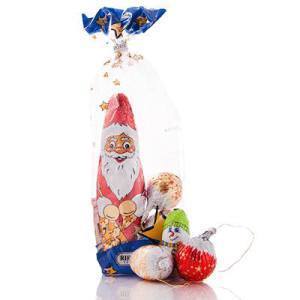
The next morning, when I opened the door of my hotel room to wheel my luggage out and head for that first train, there in the middle of the floor outside was a red gift bag festooned with stars. Inside were a variety of seasonal treats, including a tall chocolate “Christmas Man”, an orange, apple, tiny ginger star cookies with icing, and 2 each in the shell of walnuts, almonds, and hazelnuts.
Exactly the contents that might fill a child’s shoes on St. Niklaus Tag.
I was so stunned, I wondered whether I’d only dreamed waking up and bundling myself out that door.
Surely they did this for all the guests? (There was a conference-worth of them staying.) But the bag outside my door was the only one I saw waiting in that hallway.
 When I asked the woman at the desk about it as she checked me out, Bavarian-friendly but completely non-committal, she told me, “Oh, aren’t there always all kinds of nice surprises that can happen in a day? Have a good trip.”
When I asked the woman at the desk about it as she checked me out, Bavarian-friendly but completely non-committal, she told me, “Oh, aren’t there always all kinds of nice surprises that can happen in a day? Have a good trip.”
As I munched my treats from south-to-north, I had so much fun watching the scenery, visiting with fellow travelers, and enjoying the journey, I forgot to worry about anything at all.
“ …make some room, create some space, so that you find the life underneath your life situation.” So that you can LIVE it.
Find more about a Goodreads Book Giveaway of The Munich Girl here:

The Munich Girl
by Phyllis Edgerly Ring
Released November 14 2015
Giveaway ends December 9 – 8 copies available.
And find more about The Munich Girl: A Novel of the Legacies That Outlast War at:

December 1, 2015
Seeking the soul of a people
Reader and author Ginny Towler has given The Munich Girl the kind of insightful and engaged review at Goodreads a writer can only dream of.
Also, a Giveaway for signed copies of The Munich Girl: A Novel of the Legacies That Outlast War is up at Goodreads through Dec. 9 (link below).
 “I am stingy with my stars because I believe people don’t pay attention when they see five stars. They think, ‘Yeah, right,’ and they chalk up the exuberance of the rating to the relationship of the reviewer to the author.
“I am stingy with my stars because I believe people don’t pay attention when they see five stars. They think, ‘Yeah, right,’ and they chalk up the exuberance of the rating to the relationship of the reviewer to the author.

The Munich Girl: http://www.amazon.com/Munich-Girl-Novel-Legacies-Outlast/dp/0996546987/ref=sr_1_1?ie=UTF8&qid=1448474864&sr=8-1&keywords=The+Munich+Girl
In full disclosure, I was given an advance copy of the novel for an honest review. It’s not something that I am accustomed to doing, nor do I like the privilege, as it were, as one is inclined to not want to write anything disappointing about the author’s work.
I had already been interested in Phyllis Ring’s writing after reading her book, Snow Fence Road. Her writing conjures up a different era, of a 1940s sensibility, where the less said, the more is explained. …
… let me tell you the many reasons why I so love this novel and believe it should be considered an American classic.
Phyllis’s love of language jumps off of the page and into your mind with such ease, you don’t even feel as though you’re reading. She speaks to you. Her characters become your friend, even the subject of the novel, Eva Braun, which is absolutely frightening. That I should feel any sympathy with a woman who was romantically involved with one of the most heinous human beings ever to be brought into this world is disturbing to me. Which is one of the reasons why this book is so important.
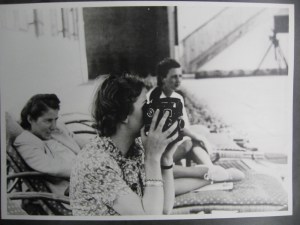 As someone who had loved film most of her life, I had wondered about Eva Braun’s importance to both German cinema and filmography, as I was aware that her films extolled Hitler’s iconography, as it were. But I never took the time to research Braun, in particular. Conjuring up her name usually accompanied an imaginary bile, in me, a distaste in what she represented, so she was not someone whom I really ever wanted to know, per se. So, when I learned about Phyllis’ work, I was truly fascinated with what she might glean about her for us.
As someone who had loved film most of her life, I had wondered about Eva Braun’s importance to both German cinema and filmography, as I was aware that her films extolled Hitler’s iconography, as it were. But I never took the time to research Braun, in particular. Conjuring up her name usually accompanied an imaginary bile, in me, a distaste in what she represented, so she was not someone whom I really ever wanted to know, per se. So, when I learned about Phyllis’ work, I was truly fascinated with what she might glean about her for us.
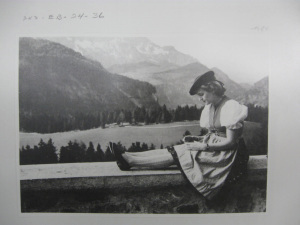 Although the book is labeled fiction, truthfully, it’s hard to believe it is, as the details jump off the page. Phyllis appears to have traced the comings and goings of this enigmatic woman, who, was encamped in her various places of refuge, waiting for her man, Der Fuhrer, to return to her. And it is in this capacity that we understand her: a woman of her time period, who turned the other way while her man went off to war, doing these “manly,” but hopelessly imbecilic and crazy things. He would return to her periodically, every couple of weeks or months, while she waited for him, dutifully. Did she remain willfully blind, ignoring the atrocities that were being committed in the name of the Fatherland? Or was she too close to him to even know what he was doing, because when he returned to her, he was her lover, not her military commander?
Although the book is labeled fiction, truthfully, it’s hard to believe it is, as the details jump off the page. Phyllis appears to have traced the comings and goings of this enigmatic woman, who, was encamped in her various places of refuge, waiting for her man, Der Fuhrer, to return to her. And it is in this capacity that we understand her: a woman of her time period, who turned the other way while her man went off to war, doing these “manly,” but hopelessly imbecilic and crazy things. He would return to her periodically, every couple of weeks or months, while she waited for him, dutifully. Did she remain willfully blind, ignoring the atrocities that were being committed in the name of the Fatherland? Or was she too close to him to even know what he was doing, because when he returned to her, he was her lover, not her military commander?
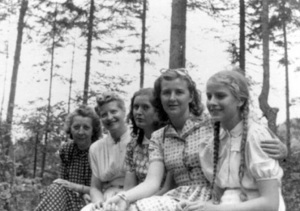 Was the man who could butcher so many people the same man who could come home to her, and luxuriate in the arms of his beloved, exposing his vulnerabilities to her only? I’m not sure we’ll ever know, but there’s an inkling of what Eva probably felt during the years that she was with him (17 years, I seem to count). Was there any redeeming quality in her that makes her seem more human, and less a monster of historic proportions, in our hatred of all things “Third Reich?” You’ll have to read to find that out for yourself.
Was the man who could butcher so many people the same man who could come home to her, and luxuriate in the arms of his beloved, exposing his vulnerabilities to her only? I’m not sure we’ll ever know, but there’s an inkling of what Eva probably felt during the years that she was with him (17 years, I seem to count). Was there any redeeming quality in her that makes her seem more human, and less a monster of historic proportions, in our hatred of all things “Third Reich?” You’ll have to read to find that out for yourself.
Above all, this book is about women. About friendship. About the way we protect each others’ vulnerabilities. Of the secrets we keep. And about our loyalty to each other, though we carry out our daily lives supporting our men, as that’s what women did, especially back in the day.
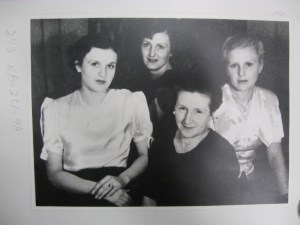 The novel is also about love. The kind we women always dream about and find in the character Hannes, a new hero for all women. I defy any woman not to believe him to be the man we’ve all been waiting for, or, if married, for whom we’d divorce our husbands if we had a chance to be with him.
The novel is also about love. The kind we women always dream about and find in the character Hannes, a new hero for all women. I defy any woman not to believe him to be the man we’ve all been waiting for, or, if married, for whom we’d divorce our husbands if we had a chance to be with him.
The story is also a mystery, of the history behind a portrait that hangs in the home of an American woman of English and German descent. It is a story about longing to reconnect with our beloved deceased, of learning the things that our parents could not tell us for fear of destroying our own lives yet to be realized.
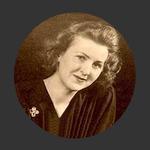 Phyllis has done a very brave thing, sharing a history with us that might be part of her own past, on some level. But the care that she took in making it plausible is also a gift to the reader. She dares look at the soul of the German during WWII, and the aftermath, in a reconciliation of sorts, that still hasn’t been accomplished beyond the Nuremberg Trials, except through the bravery of women like Phyllis who are willing to open the door a crack to give us an opportunity to ask questions, ponder, and reconcile our humanity with our inhumanity.
Phyllis has done a very brave thing, sharing a history with us that might be part of her own past, on some level. But the care that she took in making it plausible is also a gift to the reader. She dares look at the soul of the German during WWII, and the aftermath, in a reconciliation of sorts, that still hasn’t been accomplished beyond the Nuremberg Trials, except through the bravery of women like Phyllis who are willing to open the door a crack to give us an opportunity to ask questions, ponder, and reconcile our humanity with our inhumanity.
I’m sure I’ll read this book a second time. There are so many layers to it. I found it an irresistible and important read.”
~ VL Towler, author, Severed
Goodreads Book Giveaway:

The Munich Girl
by Phyllis Edgerly Ring
Released November 14 2015
Giveaway ends in 8 days (December 09, 2015)
8 copies available
Find more about the novel The Munich Girl at:


November 27, 2015
The unexpected ways that love arrives
 My new novel, The Munich Girl, is about many things, including a secret friendship between two women, one of whom was Hitler’s mistress, and later wife, Eva Braun.
My new novel, The Munich Girl, is about many things, including a secret friendship between two women, one of whom was Hitler’s mistress, and later wife, Eva Braun.
But it really about two realities that matter a great deal to my heart.
The first is the experience of reunion with and “coming home to” our truest self that we all must eventually encounter in our life. We each have our own timetable for this, but my opportunity to accompany many people toward the end of their lives has assured me that this is so.
The second, and particularly fascinating, for me, is the mysterious role that others play in that process, often in highly unexpected ways.
 As a child in Germany, and when I returned to visit as an adult, I heard little about the years of the Second World War — mostly just “thank God it’s behind us.”
As a child in Germany, and when I returned to visit as an adult, I heard little about the years of the Second World War — mostly just “thank God it’s behind us.”
Yet, similar to characters in the story, some of the kindest, most morally courageous Germans I knew were those who never wanted the war, or National Socialism, and found creative ways to outlast it and to help others as they did.
They found the way to endure, not lose heart, and keep faith and hope in times of enormous destruction and suffering.
And, they made meaningful choices wherever they could, mostly on behalf of others, more than themselves.
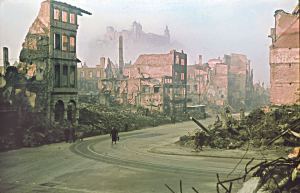 I believe that the example in their lives applies more than ever in our world, and that we’ve barely tapped into the spiritual gifts and lessons they offer.
I believe that the example in their lives applies more than ever in our world, and that we’ve barely tapped into the spiritual gifts and lessons they offer.
As Elizabeth Sims, novelist and contributing editor at Writer’s Digest noted in her kind comments about the novel:
“Love can manifest itself in enigmatic—and unexpected—ways.”
This month, life unfolds a continuing series of wonders about how our human family is going forward together, whether or not war — and hatred — try to assert their presence in the world. I am humbled daily in my encounters here in Germany with those who are seeking a safe life for their children and themselves, and those who have open willing hearts to help them. There is so much learning (and laughter!) on both sides of this engagement and interaction. A new culture of learning together, one might even say. 
Never in my wildest dreams did I imagine I would write a novel with Hitler’s wife as one of its characters.
Never for a moment did I imagine that the book would come out into the world while I am in Germany. Certainly, I never planned for that.
And never could I have imagined that I would find the themes of that book’s story reflected back to me as the descendants of those who were once in flight for safety here themselves — plus a few who remember the actual experience from childhood — so willingly offer their hands and hearts to the many who are arriving here.
Find more about The Munich Girl: A Novel of The Legacies That Outlast War at:


November 24, 2015
Yes! Finally! The Munich Girl
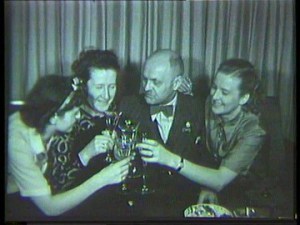
The Munich Girl is now, at last — really — available to order at Amazon —
and at any bookstore or book-sales outlet where readers prefer to shop.
Thank you so much to the readers who have already journeyed through the story and are sending your feedback and response, and to those who are posting your reader reviews and telling others about the book. Author, Eric Mondschein, my special thanks for your review:
 The Munich Girl is definitely a Keeper!, November 22, 2015
The Munich Girl is definitely a Keeper!, November 22, 2015By Eric Mondschein

“The Munich Girl … both a mystery and a love story. … a woman’s quest to discover why there was a portrait of Eva Braun, Adolf Hitler’s mistress, hanging on the wall in her family’s dining room and just what connection, if any, Braun had with her family.
The story introduces us to Eva Braun and the time just before and during World War II in Germany. But it is also so much more. It is about the human spirit, survival, friendship, love, betrayal, discovery and denial as the reader is taken on a journey through time and place. Ring draws the reader in with her unique ability to bring her characters to life—and compels you to want to get to know them.
Although this is a work of fiction, it is also an historical portrait about real-life characters. Ring paints a mosaic through dialogue and setting that allows for the possibility to imagine that this story just might have taken place.”
And, my gratitude to columnist, reader and reviewer Leslie Handler:
Fiction So Convincing, You’ll Think It’s Real –
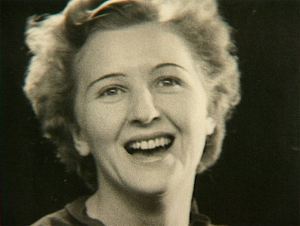
“I knew I was reading fiction, but the read felt so unusually personal that I couldn’t shake the feeling that maybe, just maybe, it was an actual memoir of the author’s mother and her real life relationship with the girlfriend of the world’s most infamous figure.
And then I found out the truth. Phyllis Ring actually owns the real portrait of Eva Braun! A fiction, truly based on facts, Ring’s newest novel is a must read.”
Find more about The Munich Girl: A Novel of the Legacies That Outlast War at:
http://www.amazon.com/Munich-Girl-Novel-Legacies-Outlast/dp/0996546987/ref=sr_1_1?ie=UTF8&qid=1448210080&sr=8-1&keywords=The+Munich+Girl


November 22, 2015
The grace of wild mercy
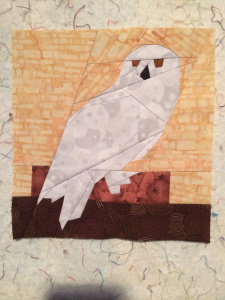
Quilt: Joan Haskell
As I share themes from my new novel The Munich Girl: A Novel of the Legacies That Outlast War during my travels in Europe this month, the following two passages of inspiring thought seem especially relevant:
We are all of us searching for love, for the intimacy, closeness, tenderness we may remember from when we were in our mother’s arms or may have glimpsed in a lover’s embrace.
Or we may know it just as a sense of something we always wanted, something missing from our life.
This love is at the core of our being, and yet we search for it everywhere, so often causing our self pain in the process, losing our way, becoming entangled in our desires and all our images of love.
Then, one day, something makes us turn away from the outer world to seek this truth within us.
~ Llewellyn Vaughan-Lee

Quilt: Joan Haskell
The eyes of the future are looking back at us and they are praying for us to see beyond our own time. …
To protect what is wild is to protect what is gentle.
Perhaps the wilderness we fear is the pause between our own heartbeats, the silent space that says we live only by grace.
Wilderness lives by this same grace. Wild mercy is in our hands.
~ Terry Tempest Williams
Find more about The Munich Girl, available again soon, at:


November 18, 2015
Our place in the family of things
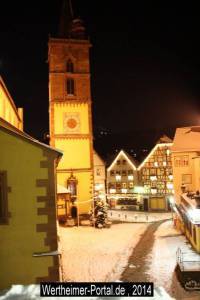 In the experience of writing fiction, I become captivated by place. Sometimes, I have found, it is among the very first of the story’s “characters” to appear.
In the experience of writing fiction, I become captivated by place. Sometimes, I have found, it is among the very first of the story’s “characters” to appear.
In the process of writing The Munich Girl, the novel releasing this month, I’ve accumulated three journals and two photo-album-style scrapbooks. I’ve done this, I suspect, because the best-known of the characters, Eva Braun, was a passionate photographer. Yet so many of the images and passages recorded in those journals and albums are about the essence of places.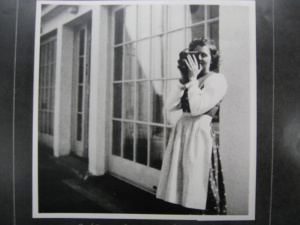
I believe I’m so irresistibly drawn to place because, as Antoine de Saint-Exupéry wrote about what the Sahara Desert taught him about the meaning of life:
“Every man, every woman, carries in heart and mind the image of the ideal place, the right place, the one true home, known or unknown, actual or visionary.”
Place is an essential element of the story, of course. As some have said, oftentimes in a book, place is also character, or a facet of the story that reveals aspects of character. An Aboriginal proverb observes:
“We are all visitors to this time, this place. We are just passing through. Our purpose here is to observe, to learn, to grow, to love… and then we return home. “
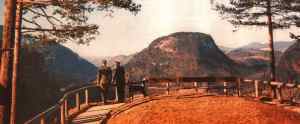 Along the way, the places that we pass through have a lot to reveal to us.
Along the way, the places that we pass through have a lot to reveal to us.
Carl Jung lived nearly half of his life in a home he built in the village of Bolligen located along the northern shore of Lake Zurich, Switzerland. In this place, to which he felt particularly drawn, Jung wrote about his many sensory experiences published in his memoir, Memories, Dreams, Reflections:
“At Bolligen I am in the midst of my true life, I am most deeply myself… At times I feel as if I am spread out over the landscape and inside things, and am myself living in every tree, in the splashing of the waves, in the clouds and the animals that come and go, in the procession of the seasons… In Bolligen, silence surrounds me almost audibly, and I live ‘in modest harmony’ with nature.”
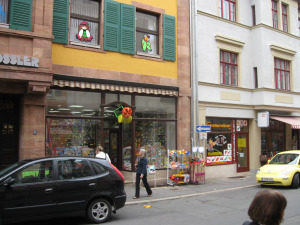 In “The Power of Place,” writer Linda Sechrist has written: “Since we personally interpret the qualities, values, and spaces that make a place special in the context of other places, childhood experiences of where we are born and grow up, as well as the places where we spent our childhood summers, are the well of memories from which we most frequently draw.
In “The Power of Place,” writer Linda Sechrist has written: “Since we personally interpret the qualities, values, and spaces that make a place special in the context of other places, childhood experiences of where we are born and grow up, as well as the places where we spent our childhood summers, are the well of memories from which we most frequently draw.
“This relationship is one that Eudora Alice Welty suggests we, in the words of Nobel Prize-winning author William Faulkner, carry within ourselves as ‘postage stamps of native soil.’
“Welty wrote, ‘It is the memory of this place that nurtures us with identity and special strength and it is to this place that each of us goes to find the clearest, deepest identity of ourselves.’ ”
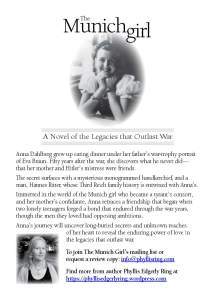 The Munich Girl: A Novel of the Legacies That Outlast War is set to publish this month.
The Munich Girl: A Novel of the Legacies That Outlast War is set to publish this month.
To be on the mailing list for notice of release and related events, please email info@phyllisring.com.
Find more about The Munich Girl at http://www.amazon.com/Munich-Girl-Novel-Legacies-Outlast/dp/0996546987/ref=sr_1_1?ie=UTF8&qid=1447745076&sr=8-1&keywords=the+munich+girl.
And order at your favorite bookstore. :)


November 13, 2015
The many kinds of homecomings
 I have the opportunity to spend time in Germany just as my novel, The Munich Girl, comes full-circle.
I have the opportunity to spend time in Germany just as my novel, The Munich Girl, comes full-circle.
In the weeks I spent reading the book’s galleys, the scenes drew me back to settings I will carry with me always, whether as part of my inner geography, or because they are actual locations in which the story takes place. Many of these, from cobblestone passageways to Alpine vistas, tiny villages to market squares filled with symphonies of church bells, are ones in which I did the actual writing.
Much like the book’s protagonist, Anna, I repeatedly experience the many kinds of homecomings, spiritual and material, that life brings to us. Much like her, I often find myself in a kind of unbelieving daze as I sit in the same café I’ve known since childhood. Two years, ago, and maybe also five, I sat here capturing down pieces of a story that has always felt more like finding my way toward a puzzle’s finished image than it has any strategic plotting.
If the remedy for feeling out-of-sync in life is to reside in the moment, then we are all here today as I type this: my child self, sitting alongside my parents; that story-struck one who aspired to go the distance with wherever the writing process led (and wondering, at times, whether I truly would); and my self today, blessed to reach a point of completion. 
A highlight for me this month was my return to the first place in Germany where my family lived when I was that child, a village on the Main River called Dorfprozelten. On a cloudy Saturday afternoon, as my life reached six decades, I was able to stand facing the river and offer my prayerful thanks at the grave of Herr and Frau Geis, who shared their house with my family back in 1960.
At the age I am now, seasons pass the way a month used to, but in those lovely days, my ten months in that village still seem like a little lifetime. I know that’s partly because since my military family lived “on the economy” in this way, we established much closer ties with actual Germans themselves, something that has played an important part in my life ever since.
 The story of The Munich Girl is about many things, including, of course, Eva Braun and history from the time of the war in Germany. It is also about the power of friendship, and the importance of our often ignored and overlooked inner life, without which our world careens increasingly out-of-balance.
The story of The Munich Girl is about many things, including, of course, Eva Braun and history from the time of the war in Germany. It is also about the power of friendship, and the importance of our often ignored and overlooked inner life, without which our world careens increasingly out-of-balance.
The novel is also a story about outlasting that chaos and confusion by valuing, and believing in, the ultimate triumph of all of the good that we are willing to contribute to building, together. When my family arrived at the Geis family’s home, there had been some very dark times, the kind that can make it easy to lose hope. Yet within months, we would embark on what we’d remember as some of our happiest years. 
As one character in my novel observes: “Sometimes, we must outlast even what seems worse than we have imagined, because we believe in the things that are good. So that there can be good things again.”
Find more about The Munich Girl: A Novel of the Legacies That Outlast War at;
http://www.amazon.com/Munich-Girl-Novel-Legacies-Outlast/dp/0996546987/ref=sr_1_1?ie=UTF8&qid=1447514554&sr=8-1&keywords=The+Munich+Girl
To be on the mailing list for news about the book and author events, please email info@phyllisring.com.


November 10, 2015
Eternal light, immortal spirit
Grateful this week for this guest post from author
Ron Tomanio:
My calamity is My providence, outwardly it is fire and vengeance, but inwardly it is light and mercy. Hasten thereunto that thou mayest become an eternal light and an immortal spirit. This is My command unto thee, do thou observe it.
~ The Hidden Words of Bahá’u’lláh
How can a painful or tragic event be “light and mercy”?
It may help to see the attributes of God more like diamonds with infinite facets as opposed to a one- or two-dimensional mirror. Some facets are developed in times of “calamity” or times of “fire and vengeance”. Some facets are developed in happy times, some are developed in sad times, times of tragedy involving great pain. 
It is possible to survive painful events, but not meaningless ones. Although a full understanding of why these events happen may not be possible in the present moment, why allow that to veil us from the experience of that moment?
Instead, we can take what we don’t understand and place it in the hands of God and concentrate our efforts in seeing every moment of our life as a priceless, irreplaceable opportunity to discover the boundless love and compassion that live in our heart.
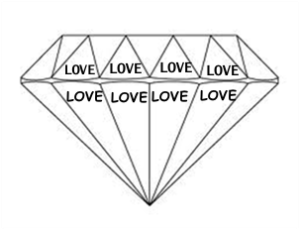 The last part of the Hidden Word above describes our true destiny: an “eternal light and an immortal spirit”.
The last part of the Hidden Word above describes our true destiny: an “eternal light and an immortal spirit”.
The incredible irony of learning to develop facets of our inner diamonds during painful events instead of shouting “why me?” is that the choice to develop those gems is the best chance we have of escaping the prison of the painful moment and actually answering the “why me?” question — effectively.
It seems that this process of learning and acquiring the attributes of God, whatever the type of experience it is that offers us the opportunity, has relevance to the next stage of our journey, which entails traversing purely spiritual worlds.
Here is my “why me?” answer, but I emphasize that it’s strictly the answer I received when I personally asked the inner question. What if in this world I could only see one color of the spectrum, such as the color blue? I would not see a complete vision of the world in which I live, and that would have a severe impact on the quality of my life.
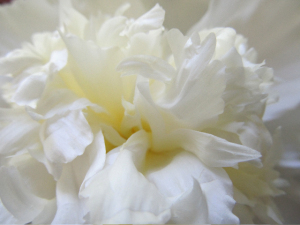 In the next world the equivalent of our spiritual senses are the attributes of God. If we only developed the facets of these attributes in happy times, we would be unable to fully discern the world beyond because we would not have fully developed our spiritual senses to be aware of all that our surroundings include. In the next world, the attributes of God become our spiritual senses. Love, justice, mercy become our eyes and ears.
In the next world the equivalent of our spiritual senses are the attributes of God. If we only developed the facets of these attributes in happy times, we would be unable to fully discern the world beyond because we would not have fully developed our spiritual senses to be aware of all that our surroundings include. In the next world, the attributes of God become our spiritual senses. Love, justice, mercy become our eyes and ears.
These qualities have facets of both giving and receiving. Thus, a wide variety of experience – including the painful and difficult — that offers the contrast that helps us build our capacities for both giving and receiving is indispensable if we are to fully develop any attribute.
And it is vital if, as souls, we are to acquire a fuller range and spectrum of them.
Co-authors Ron Tomanio, Diane Iverson, and Phyllis Ring explore these and related themes in With Thine Own Eyes: Why Imitate the Past When We Can Investigate Reality?
Find more about the book at:
http://www.amazon.com/Thine-Own-Eyes-Imitate-Investigate-ebook/dp/B00I1JPC7I/ref=asap_bc?ie=UTF8


November 6, 2015
The many angels on my way

Photo: David Henderson
It’s a landmark birthday for me, this year. Reflecting, as I do at this time each year on four seasons of gratitude, I’m supremely aware of all that relates to the connections my heart has with others. I want to honor and bless every single soul I have encountered on the path, who, as Gangaji so aptly states, is “my own self”.
The publication of my newest work, The Munich Girl, brought the opportunity for that most delightful of gratitude exercises, writing the Acknowledgements, with all that they reflect about how accompanied I am on my path. I had forgotten what a very satisfying way this is to reach the completion of a written work.

http://www.randyarmstrong.com/beyondborders/index.html
I’m also grateful for the work that others entrusted to me this year, quite a wondrous collection of projects that, magically, arrived at the just-right time in my own creative life and process.
Each brought with it a powerful lesson about mutual cooperation and reciprocity. I have known that creative process embodies this spiritual principle, and hope to one day create a book about how creativity and spirit work together in our lives as forces that shape each other, and us.

http://vltowler.blogspot.com/2014/10/the-immaculate-conception-of-birthing.html
The first of these gifts arrived in February, when musicians Randy Armstrong and Volker Nahrmann of Unu Mondo asked whether I’d serve as a sort of word custodian for the liner notes of their newest work, Beyond Borders. I have loved their music for so long. It has, most truly, been a soundtrack of my life and work. The ice-cream experience in this for my spirit is that all through the concluding stages of my own work-in-progress, I had this out-of-this-world music to accompany me. It literally transported me to the very last pages of my book. Some days, I know it was the push, or pull, that got me there, helped me remember to let my mind go quiet so that something could be born through my heart.
Then a longtime writer friend, V L Towler, extended the opportunity to be a sort of doula as she brought her novel, Severed, to completion. I knew the minute that she asked that this was a part of my own blueprint’s grace. Stage by stage, I have been humbled as I watched the level of dedication, consecration, and resilience she has shown as her work comes whole. I’ll thank divine bounty forever that she is the particular company that my fiction-writing self has received on the last leg of my book’s journey.
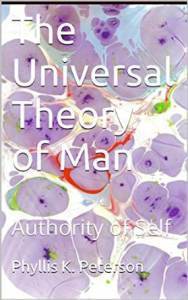
http://www.amazon.com/The-Universal-Theory-Man-Authority-ebook/dp/B010IXOM4S
And, when a season of dark nights rose up like storms, another writer arrived with perfect timing to bring remedy, and offer me yet another chance to serve. Phyllis Peterson’s words reached right into my heart, as they had when I first heard her speak nearly 20 years ago, telling the truth without fear — or beyond it, at least. The arrival of her Authority of Self manuscript at this juncture in my life, and that of my own book, reminded me that when life can look the darkest, God sends the brightest messages of hope and mercy.
And last, but impossible to be anything but most, dear Larry Gray, those little intervals you invited me to spend with your text may just have saved me from my biggest problem and challenge: my insistent self.
Each day, as your beautiful beads pass through my fingers now, my prayerful heart soars in gratitude.


November 3, 2015
Roots of hunger, role of justice
 I have read a lot about about hunger — and destruction — on the road to my novel The Munich Girl.
I have read a lot about about hunger — and destruction — on the road to my novel The Munich Girl.
There was a lot of hunger, in a lot of places, before, during, and after the second World War. I have an abundance of first-person accounts from people in my own family who have never forgotten what it feels like.
Many of them paid a big price for it with their health, or lived in fear afterward with cupboards they can never empty before the contents spoil. From my earliest days, I listened to stories of what it feels like — what you feel like — when you don’t have enough to eat.

Photo: David Campbell
I wonder what those who sought to remake the world with justice after the war would think of where we find ourselves as a world today? There is still hunger. There is unbearable savagery.
There is a collective consciousness that remains unconscious of the reality, precious value, and imperative of soulhood.
In fairness, it’s hard to remake a world in “justice” in the midst of unimaginable destruction. If you only operate out of what you think you know about justice, what you think history and experience have shown it to be, the possibilities in such imitation are, inevitably, quite limiting.
If you don’t know what the very purpose of justice is, it’s like traveling without a map, or even a polar star.
The purpose of justice is the appearance of unity among men.
~ Bahá’u’lláh

Photo: David Campbell
Unambiguous, this declaration is. And doubtless, very difficult to conceptualize — and apply — if you act only from what you believe you know about human beings, and potential, based on what you believe you know about human history and experience.
As I continue to study the war that launched our world into entirely unimagined directions, many of which have congealed in blighted possibility, like plants insufficiently watered, I think I’m discovering what the root of all hunger really is. There is much we have not yet mined, nor learned, from “history.” History itself often remains a narrow category deliberately designed to keep certain things in, and certain things out — essentially what has always led to violence of every kind.

Photo: Diane Kirkup
But there is also a legacy that always outlasts that — a brilliant jewel of indestructible power whose facets reflect those qualities of justice and unity that Bahá’u’lláh has pointed to. I believe that it is the only reason there is any possibility of either survival or advancement, just as I believe that humanity continues, if blindly, to let itself be convinced to treasure trash, while overlooking the one true treasure it has.
John O’Donohue has recognized what it is, and why it triumphs, and why we suffer so deeply — every kind of hunger we know — when we betray ourselves by depriving ourselves of it:

Photo: Timothy Jette
Our time is hungry in spirit. In some unnoticed way we have managed to inflict severe surgery on ourselves. We have separated soul from experience, become utterly taken up with the outside world and allowed the interior life to shrink.
Like a stream disappears underground, there remains on the surface only the slightest trickle. When we devote no time to the inner life, we lose the habit of soul. We become accustomed to keeping things at surface level.
The deeper questi ons about who we are and what we are here for visit us less and less. If we allow time for soul, we will come to sense its dark and luminous depth.
If we fail to acquaint ourselves with soul, we will remain strangers in our own lives.
~ John O’Donohue




